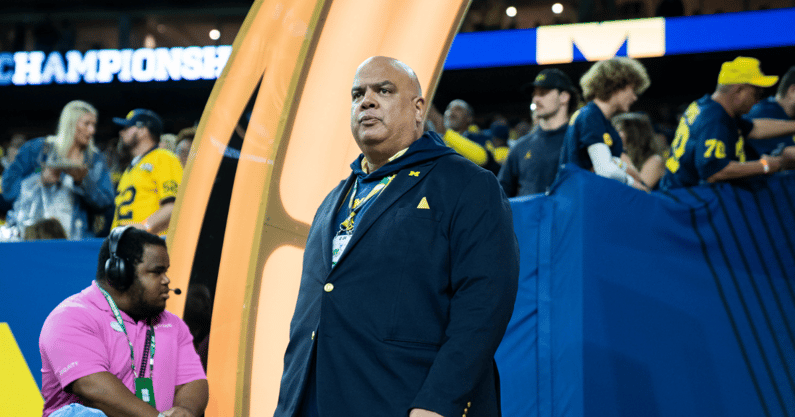Michigan responds to NCAA ruling, plans to appeal punishments

The Michigan Wolverines learned their sanctions from the NCAA Committee on Infractions from the investigation into the advanced scouting and recruiting violations, and have now fired back.
Hours after the NCAA’s COI imposed its penalties, which include massive fines, four years of probation and more, Michigan plans to appeal the decision from the NCAA, it said in a statement released late Friday afternoon.
RELATED: Michigan NCAA punishments: 8 key findings and revelations
“We appreciate the work of the Committee on Infractions,” the statement began. “But, respectfully, in a number of instances the decision makes fundamental errors in interpreting NCAA bylaws; and it includes a number of conclusions that are directly contrary to the evidence – or lack of evidence – in the record. We will appeal this decision to ensure a fair result, and we will consider all other options.”
Michigan athletic director also weighed in, saying that he is happy the COI did not punish its student-athletes, but that a postseason ban should never have been a consideration. The COI did not levy a postseason ban, but it sought to make up for that with a fine that is equivalent to loss of postseason revenue for the 2025 and 2026 football seasons.
“It is never our intent to be in a position where we are accused of any rules violations,” Manuel said. “I fully support Coach Sherrone Moore, our student-athletes and staff as they prepare for the season ahead. I appreciate Coach Moore’s continued commitment to ensuring his program operates in compliance with applicable rules. I acknowledge the Committee on Infractions’ decision to not penalize our current student-athletes by eliminating postseason opportunities; however, a postseason ban should never have been a consideration in this case. I fully support the university’s decision to pursue an appeal. Coach Moore and I will not have any further comment.”
Michigan self-imposed a two-game suspension for head coach Sherrone Moore this summer, but the NCAA COI added a third game to be served in the season opener of the 2026 campaign.
Top 10
- 1Hot
Staff predictions
Michigan vs. Purdue picks
- 2
X-factors
Who can swing Michigan-Purdue
- 3
Purdue writer
His take, prediction on Michigan-PU
- 4
Fact or fiction?
U-M should take another '26 QB
- 5Trending
Preview pod
Sayfie, Broome, Balas on Michigan-Purdue
Get the Daily On3 Newsletter in your inbox every morning
By clicking "Subscribe to Newsletter", I agree to On3's Privacy Notice, Terms, and use of my personal information described therein.
“I am glad that this part of the process has been completed,” Moore said. “I greatly respect the rules governing collegiate athletics and it is my intent to have our program comply with those rules at all times. I will continue to focus my attention on our team and the upcoming 2025 season.”
Michigan says that the process is not complete and that it will have no further comment on the Friday announcement.
The average Committee on Infractions appeal process takes eight months from the time of the appeal until a resolution is reached, according to the NCAA. Michigan has 15 days from the decison to declare its intent to appeal, followed by a 30-day deadline to file the written appeal. A response from the COI usually comes 30 days after the written appeal.
From there, a 14-day deadline is in place for the parties to file a rebuttal, followed by a 10-day window where NCAA enforcement staff can submit materials. Appellant’s response to the enforcement is due 10 days later, followed by 1-2 months of oral arguments in front of the Infractions Appeals Committee if application.
Six weeks from then, the Infractions Appeals Committee releases its decision.